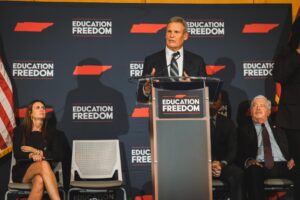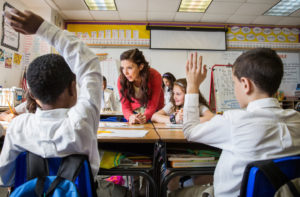Tennessee ESA pilot students received $9,800 this school year
(The Center Square) – Tennessee students in a pilot educational savings account program in three counties are receiving $9,800 – the average statewide funding per public school student – this…

(The Center Square) – Tennessee students in a pilot educational savings account program in three counties are receiving $9,800 – the average statewide funding per public school student – this year.
That’s higher than the $7,075 first-year number in a proposed statewide ESA program and higher than what the funding was estimated to be heading into the approval of the pilot, which is currently taking place in Davidson, Shelby and Hamilton counties.
The pilot ESA amounts were determined by the lower of the average per pupil funding in the student’s district or the statewide average, Department of Education Deputy Commissioner of Operations Sam Pearcy told the Senate Education Committee.
The funds go into an online wallet accessible to parents who can then put the funds toward tuition, school uniforms, textbooks, tutors or other approved spending. It’s kept in the online wallet instead of being sent to parents directly so it isn’t taxed as income, Pearcy said.
The majority of the ESA funds are spent on tuition, but schools are not required to accept the funds as full tuition for a student, Pearcy said.
Department of Education Commissioner Lizzette Reynolds was asked by Sen. Raumesh Akbari, D-Memphis, about how the students in the ESA program have fared so far.
“They are required to administer the TCAP,” Reynolds said. “The results aren’t anything to write home about, is my understanding. But, at the end of the day, the parents are happy with this new learning environment for their students.
“We are only technically a year-and-half into implementation.”
Reynolds said students will take the Tennessee Comprehensive Assessment Program test again in the spring and hopes to see better results from the ESA students.
The department said that 90% of parents surveyed are extremely satisfied or very satisfied with the program.
“The parents are certainly satisfied and that’s a good thing,” Akbari said. “I think that’s half of it … but we also want the students who are taking public dollars to be performing either at or higher than those students who are in traditional public schools.”



